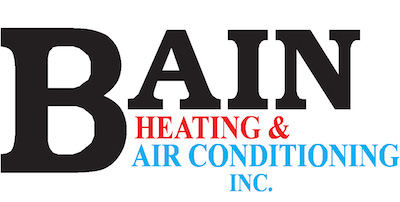
We spend lots of time in our homes. As a matter of fact, the Environmental Protection Agency (EPA) has approximated being inside makes up 90% of our time. Having said that, the EPA also has determined your indoor air can be three to five times dirtier than outside your home.
That’s because our houses are firmly sealed to boost energy efficiency. While this is fantastic for your utility expenses, it’s not so good if you’re among the 40% of the population with respiratory allergies.
When outdoor ventilation is insufficient, pollutants like dust and volatile organic compounds (VOCs) can get stuck. As a result, these pollutants may worsen your allergies.
You can boost your indoor air quality with clean air and regular housework and vacuuming. But if you’re still having problems with symptoms while you’re at your house, an air purifier could be able to provide assistance.
While it can’t get rid of pollutants that have landed on your furnishings or carpet, it might help purify the air circulating around your house.
And air purification has also been scientifically confirmed to help lower some allergic symptoms, according to the American College of Allergy, Asthma and Immunology. It may also be useful if you or someone in your household has lung trouble, including emphysema or COPD.
There are two kinds, a portable air purifier or a whole-home air purifier. We’ll go over the distinctions so you can figure out what’s right for your house.
Whole-House Air Purifier vs. Portable Air Purifiers
A portable air purifier is for a single room. A whole-house air purifier works with your home comfort equipment to clean your entire house. Some kinds can purify independent when your heating and cooling system isn’t on.
What’s the Best Air Purifier for Allergies?
Go after a model with a High Efficiency Particulate Air (HEPA) filter. HEPA filters are used in hospitals and deliver the best filtration you can buy, as they catch 99.97% of particles in the air.
HEPA filters are even more beneficial when used with an ultraviolet (UV) germicidal light. This mighty mixture can wipe out dust, dander, pollen and mold, all of which are standard allergens. For the best in air purification, evaluate a unit that also has a carbon-based filter to eliminate household vapors.
Avoid using an air purifier that creates ozone, which is the primary component in smog. The EPA advises ozone might worsen respiratory problems, even when released at small settings.
The Allergy and Asthma Foundation of America has compiled a checklist of questions to think over when getting an air purifier.
- What can this purifier remove from the air? What doesn’t it take out?
- What’s its clean air delivery rate? (A better amount means air will be purified faster.)
- How frequently does the filter or UV bulb need to be switched]? Can I finish that without help?
- How much do replacement filters or bulbs cost?
How to Decrease Seasonal Allergy Symptoms
Want to have the {top|most excellent|best] outcome from your new air purification system? The Mayo Clinic advises completing other procedures to limit your exposure to seasonal allergy triggers.
- Stay indoors and keep windows and doors shut when pollen counts are elevated.
- Have someone else mow the lawn or pull weeds, since these jobs can trigger symptoms. If you must do this work yourself, consider wearing a pollen mask. You should also shower immediately and put on new clothes once you’re finished.
- Avoid hanging laundry outside.
- Use your air conditioner while indoors or while in the car. Consider installing a high efficiency air filter in your home’s home comfort unit.
- Even out your house’s humidity levels with a whole-house dehumidifier.
- Hardwood, tile or linoleum are the best flooring materials for lowering indoor allergens. If your residence has carpet, use a HEPA filter on your vacuum cleaner.
Let Our Pros Manage Your Indoor Air Quality Necessities
Want to move forward with installing a whole-house air purifier? Give our experts a call at 256-270-1196 or contact us online to schedule an appointment. We’ll help you locate the right equipment for your home and budget.


